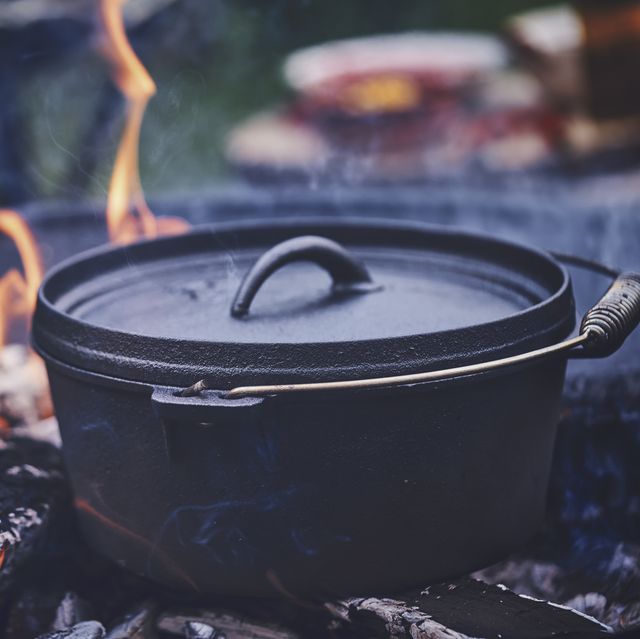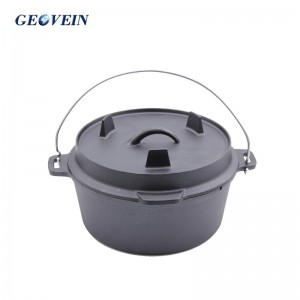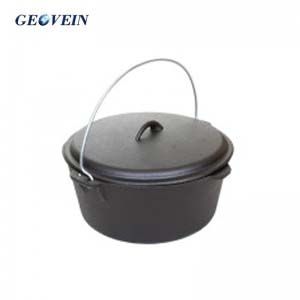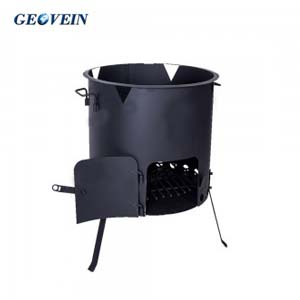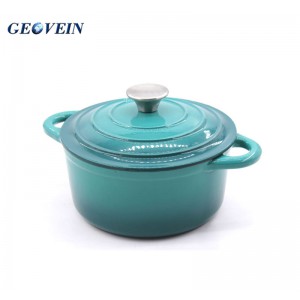Why do they call it a Dutch oven?
Let's start with the briefest of brief histories.
Dutch ovens have been around in some form or other going back centuries. References to early cooking pots which spawned the modern-day ovens can be found in the Old Testament.
At the start of the eighteenth century and the Dutch came up with a new way of casting molds for the pots, which produced smoother surfaces and all-around better quality pots. They discovered that if they used dry sand molds they would last longer than the single casting that was possible by using loam or clay soil.
An English gentleman named Abraham Darby saw the genius in this and came up with a similar casting process that he patented over time. He ended up distributing cast-metal cooking devices all around Britain and the American colonies, hence the name Dutch ovens.
A Dutch oven is a large metal pot is known by many names around the world. A cooking pot, oven, casserole dish, Cocottes, Tetsunabe, sac, potjiekos, Bedourie, and Casuela.
So what is a Dutch oven?
In its most basic form, a Dutch oven is a cooking pot. used for cooking in an oven, on the hob, or more traditionally by surrounding them with hot coals.
There are a few varieties which we will touch on just below but in the main part, a Dutch oven will be a heavy cooking pot with relatively thick walls and a tight-fitting lid.
What Is a Dutch Oven Made Of?
The traditional cast iron Dutch oven is made from iron that has a flat base with or without legs for campfires.
Now A Dutch oven can be made from various materials including cast iron – which is seasoned, cast iron coated in enamel, aluminum, ceramic and stainless steel.
They have a lid with a handle and the outdoor types of Dutch ovens have three legs to enable the coals to sit underneath them.
Types of Dutch Oven
There are two basic types of the Dutch oven – the camping Dutch oven and the domestic or kitchen Dutch oven.
Camping Dutch Oven
This is the kind of Dutch oven we at Geovein. Made for outdoor cooking, the camping Dutch oven is noted for its three short legs on its base which are used so that the Dutch oven itself can sit above charcoal that is used as its heat source. The camping Dutch oven is also distinguishable by the lip or ridge that you will find on its outer edge. The function of this is to set bricks of charcoal on the lid without them falling off to provide a more uniform source of heat for particular cooking styles.
Geovein Campfire Cookware Camping Cast Iron Dutch Oven
The 3 legs on the lid could make the lid be used as a pan.
Model: GV-545DG-D
Material: Cast Iron
Size: 25*13.5
Surface: Vegetable oil coating/Pre-seasoned/Non-stick
Color: Black
Geovein Cast Iron Dutch Oven For Outdoor Cooking
Model: GV-502F
Material: Cast Iron
Size: DIA25.5cm
Surface: Vegetable oil /Pre-seasoned/Non-stick
Color: Black
Geovein Outdoor Camping Kazan Oven
Model: GV-KO36
Material: Carbon Steel
Size: Dia36.5cmxH37.5cm
Surface: High heat Paint
Color: Black
Enamel Dutch Oven for Kitchen
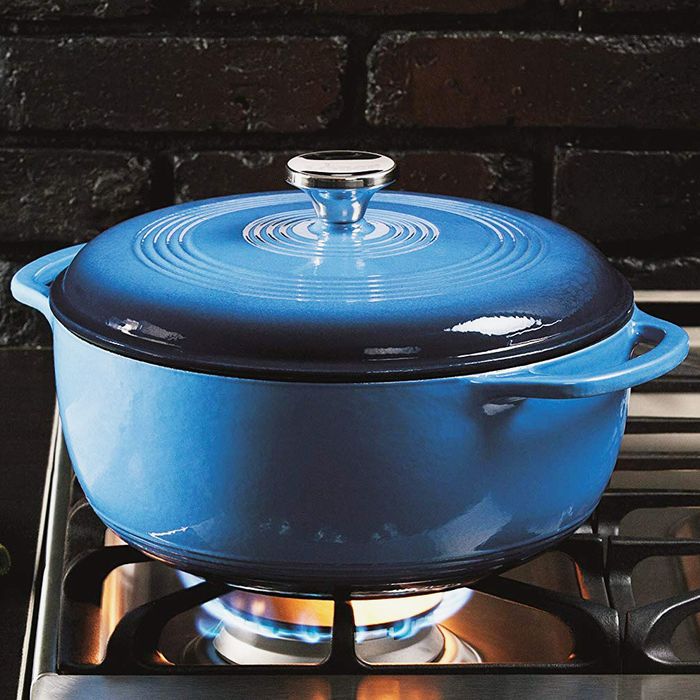
Kitchen Dutch ovens can be used in conjunction with your home cooking appliance. They can be used either on worktop burners or hot plates or can be used in the traditional oven.
Along with the iron used to produce these thick and heavy cooking pots in the original fashion today, they are also available in cast iron coated with various materials. This treatment commenced so there was a non-stick, easier to care for alternative to an exposed iron pot.
There is no need for legs on kitchen Dutch ovens so you will instantly be able to tell them apart from the camping variety. Also notable is that the lid will be domed as there is no need for coals to be placed on it which also negates the need for the lip.
Geovein DIA24cm Enamel Cast Iron Dutch Oven
Model: GV-Q24
Material: Cast iron
Size: DIA24*12cm
Surface: 3 layers enamel coating
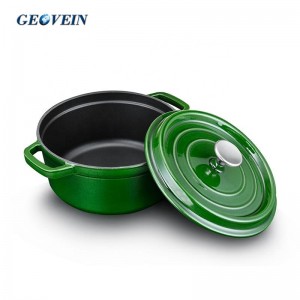
Best Enameled Cast Iron Casserole Dish Pot With Lid
Model: GV-ST20
Material: Cast Iron
Size: 20*10
Surface: 3 Layers High Glossy Enamel
Color : Red.blue.yellow.green.customized


